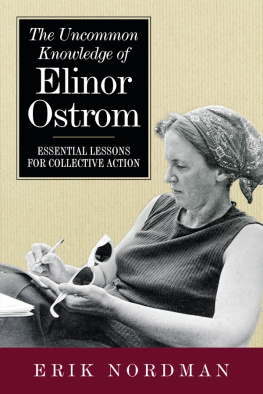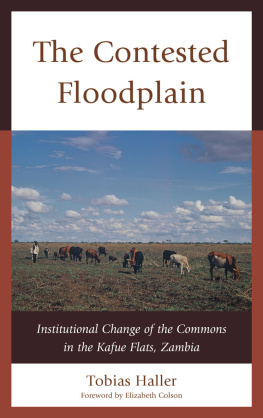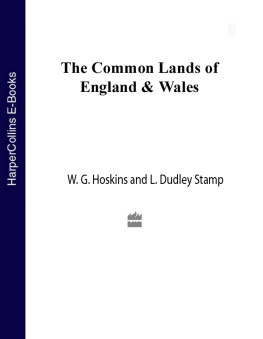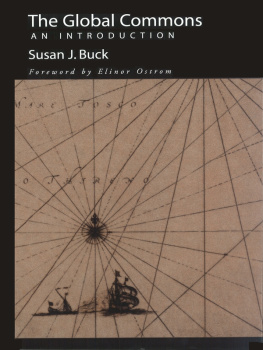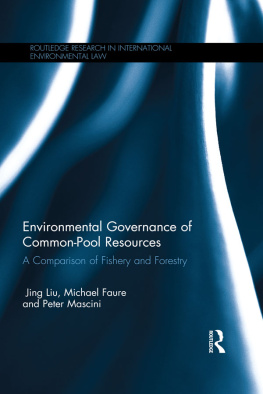GOVERNING THE COMMONS
The governance of natural resources used by many individuals in common is an issue of increasing concern to policy analysts. Both state control and privatization of resources have been advocated, but neither the state nor the market has been uniformly successful in solving common-pool resource problems. After critiquing the foundations of policy analysis as applied to natural resources, Elinor Ostrom here provides a unique body of empirical data to explore the conditions under which common-pool resource problems have been satisfactorily or unsatisfactorily solved.
Dr. Ostrom first describes three models most frequently used as the foundation for recommending state or market solutions. She then outlines theoretical and empirical alternatives to these models in order to illustrate the diversity of possible solutions. In the following chapters she uses institutional analysis to explore different ways both successful and unsuccessful of governing the commons. In contrast to the propositions of the tragedy of the commons argument, common-pool problems sometimes are solved by voluntary organizations rather than by a coercive state. Among the cases considered are communal tenure in meadows and forest, irrigation communities and other water rights, and fisheries.
Governing the Commons makes a major contribution to the analytical literature on institutions and to our understanding of human cooperation.
Elinor Ostrom is co-director of the Workshop in Political Theory and Policy Analysis and professor of political science at Indiana University.
Additional Praise for Governing the Commons:
This is an important book that deserves to be read widely in the policy community as well as the scholarly community.... This analysis leaves us with provocative questions whose examination promises to broaden and deepen our understanding of human/environment relationships at many levels.
Oran R. Young, International Environmental Affairs
Cambridge University Press has published an impressive series called The Political Economy of Institutions and Decisions. Elinor Ostrom, Professor of Political Science at Indiana University, has made an important contribution to the series with Governing the Commons.... In large part, the book is a fascinating and detailed examination of common ownership of various natural resources.
Dean Lueck, Constitutional Political Economy
Ostroms book makes an important contribution to the emerging literature on analytical institutional economics. Her work reminds us that analysis of institutions and institutional change is an important aspect of a broader political economy that underlies meaningful economic policy advice.
Daniel W. Bromley, Journal of Economic Literature
This is the most influential book in the last decade on thinking about the commons. For those involved with small communities... located in one nation, whose lives depend on a common pool of renewable resources ...Governing the Commons has been the intellectual field guide.
Whole Earth
GOVERNING THE COMMONS
The evolution of institutions
for collective action
ELINOR OSTROM
Indiana University

CAMBRIDGE UNIVERSITY PRESS
Cambridge, New York, Melbourne, Madrid, Cape Town, Singapore, So Paulo, Delhi, Tokyo, Mexico City
Cambridge University Press
32 Avenue of the Americas, New York, NY 10013-2473, USA
www.cambridge.org
Information on this title: www.cambridge.org/9781107569782
Cambridge University Press 1990, 2015
This publication is in copyright. Subject to statutory exception and to the provisions of relevant collective licensing agreements, no reproduction of any part may take place without the written permission of Cambridge University Press.
First published 1990
29th printing 2011
Canto Classics edition 2015
Printed in the United Kingdom by Clays, St Ives plc
A catalog record for this publication is available from the British Library.
ISBN 978-1-107-56978-2 Paperback
Cambridge University Press has no responsibility for the persistence or accuracy of URLs for external or third-party Internet Web sites referred to in this publication and does not guarantee that any content on such Web sites is, or will remain, accurate or appropriate.
To Vincent
For his love and contestation
Contents

CHAPTER
REFLECTIONS ON THE COMMONS
CHAPTER
AN INSTITUTIONAL APPROACH TO THE STUDY OF SELF-ORGANIZATION AND SELF-GOVERNANCE IN CPR SITUATIONS
CHAPTER
ANALYZING LONG-ENDURING, SELF-ORGANIZED, AND SELF-GOVERNED CPRs
CHAPTER
ANALYZING INSTITUTIONAL CHANGE
CHAPTER
ANALYZING INSTITUTIONAL FAILURES AND FRAGILITIES
CHAPTER
A FRAMEWORK FOR ANALYSIS OF SELF-ORGANIZING AND SELF-GOVERNING CPRs
Preface

It is difficult to say when I began work on this study. If one asks when I first began to study problems of collective action faced by individuals using common-pool resources, then identifying the beginning is easier. In the early 1960s, I took a graduate seminar with Vincent Ostrom, who was to become my closest colleague and husband. The seminar focused on the development of institutions related to water resources in southern California. I began my dissertation focusing on the entrepreneurship involved in developing a series of public enterprises to halt the process of saltwater intrusion into a groundwater basin underlying a portion of the Los Angeles metropolitan area. A fellow graduate student, Louis Weschler, conducted a parallel study in an adjacent groundwater basin that adopted different institutional arrangements to cope with similar problems. As Weschler and I completed our studies, it appeared that both institutional arrangements had been successful in enabling the water producers to avoid the catastrophic economic loss that would have occurred if both basins had been inundated by the Pacific Ocean (E. Ostrom 1965; Weschler 1968).
In the late 1960s, Vincent and I participated in the Great Lakes Research Program initiated by the Batelle Memorial Institute (V. Ostrom and E. Ostrom 1977b), but most of my work as a young faculty member focused on problems of urban service delivery and public economies in metropolitan areas. In 1981 I was asked by Paul Sabatier, a colleague for a year at the Center for Interdisciplinary Research at the University of Bielefeld, to make a seminar presentation on organizational learning. I used as my example of organizational learning the set of rules that groundwater producers had developed in the southern California groundwater basins. Paul then wanted to know why I was so confident that the systems I had studied 15 years earlier were still operating and performing well. At the time, I had no effective answer other than that the institutions had been so well crafted to fit local circumstances that I presumed they had survived and were faring well.
When I returned from Bielefeld, I suggested to one of my doctoral students, William Blomquist, that he answer Sabatiers question as his dissertation. Blomquist (1987b) found that the institutions that the water producers themselves had designed were still in place and operating effectively. The physical condition of the basins had improved substantially. The very substantial success involved in these cases led us to undertake a study, funded by the U.S. Geological Survey (grant number 14-080001-G1476), of a larger set of groundwater basins in southern California and a limited set in northern California to ascertain what factors were associated with the successful evolution of new institutions and with the efficiency and equity of those institutions. Eventually, we will have completed a comparative study of institutional, economic, and physical changes in 12 groundwater basins over a 3050-year period.
Next page



